Related Research Articles

The governor of Hong Kong was the representative of the British Crown in Hong Kong from 1843 to 1997. In this capacity,the governor was president of the Executive Council and commander-in-chief of the British Forces Overseas Hong Kong. The governor's roles were defined in the Hong Kong Letters Patent and Royal Instructions. Upon the end of British rule and the handover of Hong Kong to China in 1997,most of the civil functions of this office went to the chief executive of Hong Kong,and military functions went to the commander of the People's Liberation Army Hong Kong Garrison.

Hercules George Robert Robinson,1st Baron Rosmead,,was a British colonial administrator who became the 5th Governor of Hong Kong,then 13th Governor of Ceylon,and subsequently,the 14th Governor of New South Wales,the first Governor of Fiji,and the 8th Governor of New Zealand. Later in his career he held various positions in Southern Africa,including two terms as Governor of the Cape Colony. From June 1859 until August 1896,he was known as Sir Hercules Robinson.

Ta Kung Pao is a Chinese-language newspaper. Founded in Tianjin in 1902,the paper is state-owned,controlled by the Liaison Office of the Central Government after the Chinese Civil War. It is widely regarded as a veteran pro-Beijing newspaper. In 2016,it merged with Hong Kong newspaper Wen Wei Po.
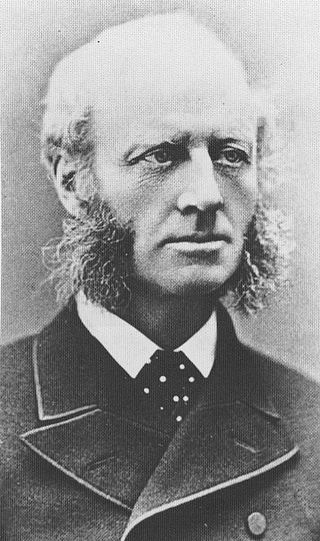
Sir Harry Smith Parkes was a British diplomat who served as Envoy Extraordinary and Minister Plenipotentiary and Consul General of the United Kingdom to the Empire of Japan from 1865 to 1883 and the Chinese Qing Empire from 1883 to 1885,and Minister to Korea in 1884. Parkes Street in Kowloon,Hong Kong is named after him.

Hong Kong (1800s–1930s) oversaw the founding of the new crown colony of Hong Kong under the British Empire. After the First Opium War,the territory was ceded by the Qing Empire to the United Kingdom of Great Britain and Ireland through Treaty of Nanjing (1842) and Convention of Peking (1860) in perpetuity. Together with additional land that was leased to the British under the Convention for the Extension of Hong Kong Territory (1898),Hong Kong became one of the first parts of East Asia to undergo industrialisation.
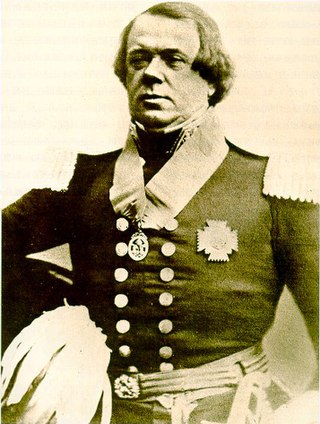
Sir Samuel George Bonham,1st Baronet was a British colonial governor,who became the 4th Governor of the Straits Settlements and the 3rd Governor of Hong Kong.
The Chartered Bank of India,Australia and China was a bank incorporated in London in 1853 by Scotsman James Wilson,under a Royal Charter from Queen Victoria.

The Mercantile Bank of India,London and China,later Mercantile Bank Ltd,was an Anglo-Indian bank with business focus in the Far East. It was founded in Bombay in 1853 as the Mercantile Bank of Bombay;and later in 1857 was renamed to Mercantile Bank of India,London,and China with London as its headquarters.

William Thomas Mercer (Chinese:孖沙;Sidney Lau:Ma1 Sa1) (17 October 1821 –23 May 1879) was a British colonial administrator who served in Hong Kong from 1844 to 1866.

William Caine was the first head of the Hong Kong Police Force,Colonial Secretary of Hong Kong from 1846 to 1854. He attained the rank of Lieutenant Colonel prior to his secretary appointment. Caine was also the acting Governor of Hong Kong between May and September 1859.
A hong was a type of Chinese merchant establishment and its associated type of building. Hongs arose in Guangzhou as intermediaries between Western and Chinese merchants during the 18–19th century,under the Canton System.

Sir Frederick William Adolphus Wright-Bruce,GCB was a British diplomat.

The Oriental Bank Corporation,or "OBC",was a British imperial bank founded in India in 1842 which grew to be prominent throughout the Far East. As an Exchange bank,the OBC was primarily concerned with the finance of trade and exchanges of different currencies. It was the first bank in Hong Kong and the first bank to issue banknotes in Hong Kong.
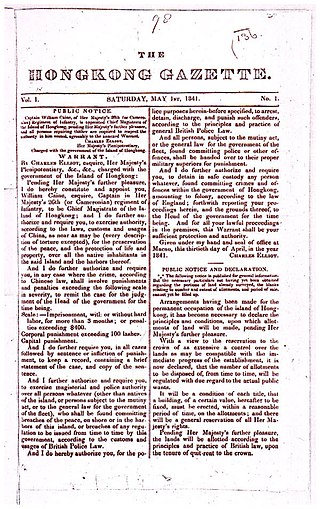
The Government of Hong Kong Special Administrative Region Gazette is the official publication of the Government of Hong Kong. Published by the Government Logistics Department (GLD),it acts as an official channel to promulgate information which is required for statutory or other reasons to be made public,including legislation,ordinances,appointments of major officials and public notices.
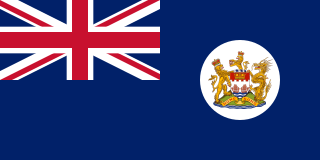
From 1841 to 1997,except for a brief period of Japanese occupation during World War II between 1941 and 1945,Hong Kong was a British crown colony and,from 1981 until its handover,a dependent territory of the United Kingdom. The colonial period began with the British occupation of Hong Kong Island under the Convention of Chuenpi in 1841 of the Victorian era and ended with the handover of Hong Kong in July 1997.

The British Supreme Court for China was a court established in the Shanghai International Settlement to try cases against British subjects in China,Japan and Korea under the principles of extraterritoriality.
Daniel Richard Francis Caldwell was a colonial government official in Hong Kong. He was Registrar General and Protector of Chinese from 1856 to 1862 and was involved in the notorious Caldwell Affair in the late 1850s.
William Tarrant was a civil servant and newspaper editor in British Hong Kong. He served as Inspector of Land and Roads and subsequently Registrar of Deeds in the Hong Kong colonial administration from 1842 to 1847,but was removed from office and barred from public service owing to allegations he had raised against Colonial Secretary William Caine,which an internal government inquiry held to be fabricated. Tarrant then began a new career in journalism,purchasing the Friend of China newspaper in 1850. He became prominently involved in a scandal involving multiple senior government officers,the Caldwell affair,in 1857,and was ultimately found guilty of libel and imprisoned in 1859. He left the colony after his release in 1860,and made two attempts over the course of the 1860s to restart the Friend of China in Guangzhou and Shanghai,each proving abortive. Finally,he sold the paper in 1869 and retired to England,where he died in 1872.
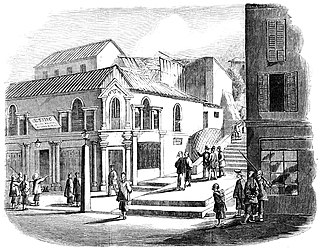
The Esing Bakery incident,also known as the Ah Lum affair,was a food contamination scandal in the early history of British Hong Kong. On 15 January 1857,during the Second Opium War,several hundred European residents were poisoned non-lethally by arsenic,found in bread produced by a Chinese-owned store,the Esing Bakery. The proprietor of the bakery,Cheong Ah-lum,was accused of plotting the poisoning but was acquitted in a trial by jury. Nonetheless,Cheong was successfully sued for damages and was banished from the colony. The true responsibility for the incident and its intention—whether it was an individual act of terrorism,commercial sabotage,a war crime orchestrated by the Qing government,or purely accidental—both remain matters of debate.
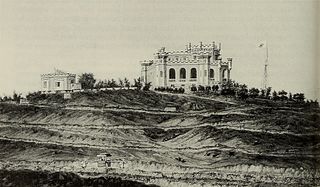
Douglas Lapraik was a British watchmaker,shipbuilder and shipping magnate of Scottish origins,most famous for his business empire and his role in the founding of many of Hong Kong's early conglomerates such as HSBC.
References
- ↑ Sweeting, A. E. (1990). Education in Hong Kong, Pre-1841 to 1941: Fact and Opinion. Hong Kong: Hong Kong University Press. p. 23. ISBN 9789622092587.
- ↑ Lutz, Jessie G. (2008). Opening China: Karl F.A. Gützlaff and Sino-Western Relations, 1827–1852. Grand Rapids and Cambridge: William B. Eerdmans. p. 345. ISBN 9780802831804.
- ↑ Couling, Samuel (1917). "The Friend of China". The Encyclopaedia Sinica. Shanghai: Kelly and Walsh. p. 196.